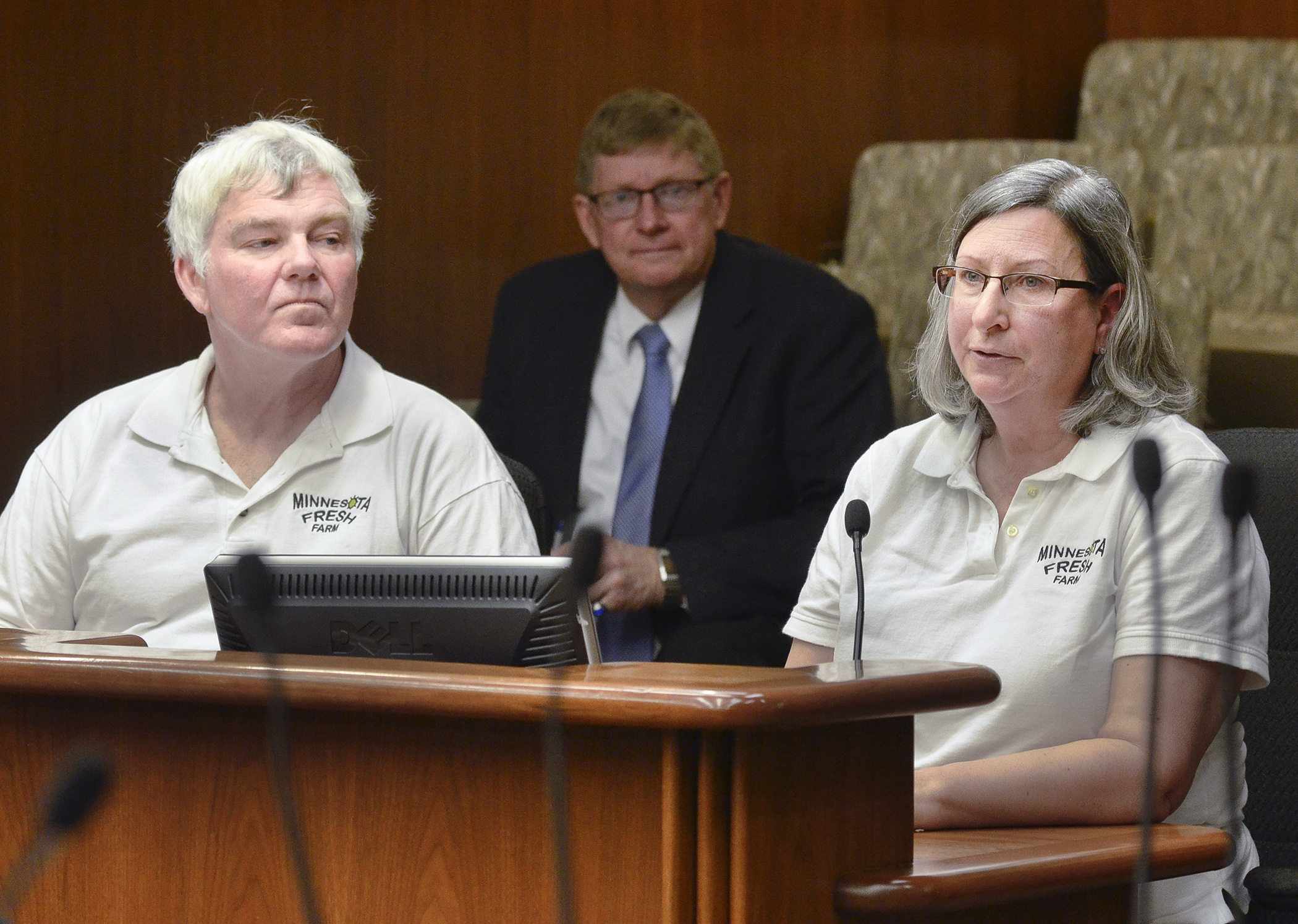Limiting liability as farms open themselves to visitors

Nothing seems less threatening than a family outing to pick strawberries, but an unexpected fall or another unforeseen danger can quickly take a pleasant trip in a different direction.
No one knows this more clearly than those who work in agritourism, an increasingly popular business that brings visitors onto private agricultural lands for activities, events, educational opportunities and other pursuits.
Twenty-two states currently have some legal protection against civil lawsuits for agritourism professionals. Minnesota does not.
But HF216 would change that. That bill was approved by the House Agriculture Policy Committee Wednesday, and now moves to the House Civil Law and Data Practices Committee. Its companion, SF152, is sponsored by Sen. Matt Schmit (DFL-Red Wing) and awaits action by the Senate Jobs, Agriculture and Rural Development Committee.
Protection from inherent dangers
Sponsored by Rep. Paul Anderson (R-Starbuck), HF216 seeks to protect people who provide one or more agritourism activities from liability for injury, damage or death of a participant that results from the inherent danger of those activities.
“The bill is important because every time we open up our farm to visitors there is a risk,” said Sharon Johnson, co-owner of a family farm in East Bethel that hosts visitors for berry picking, weddings, educational gatherings and other events. She said a stumble, small wound, even a bee sting, may seem like small injuries, “but in today’s environment they can easily turn into a lawsuit which will be worth tens of thousands of dollars or more.”
Johnson said insurance is already her farm’s highest cost, more than seed or fuel, and a claim against the insurance policy would push that cost even higher.
Representatives from a number of agriculture interest groups, including the Minnesota Farmers Union and the Minnesota Farm Bureau Federation, testified in support of the bill and several committee members also voiced their support.
Those opposed
The lone objection was raised by Joel Carlson, a lobbyist for the Minnesota Association for Justice, formerly known as the Minnesota Trial Lawyers Association. Carlson said the bill’s language would provide “broad and sweeping immunity for the first time in Minnesota history to for-profit businesses who are inviting people onto their property.” He said the bill was trying to address what was mostly an insurance issue by taking away a person’s “constitutional right to a remedy.”
That interpretation was strongly disputed by Santo Cruz, government relations director for the Department of Agriculture and an attorney himself.
Cruz said there was no remedy being taken away, but rather an affirmative defense being granted in law by the proposed legislation. “That’s a very different thing.”
Related Articles
Search Session Daily
Advanced Search OptionsPriority Dailies
Ways and Means Committee OKs proposed $512 million supplemental budget on party-line vote
By Mike Cook Meeting more needs or fiscal irresponsibility is one way to sum up the differences among the two parties on a supplemental spending package a year after a $72 billion state budg...
Meeting more needs or fiscal irresponsibility is one way to sum up the differences among the two parties on a supplemental spending package a year after a $72 billion state budg...
Minnesota’s projected budget surplus balloons to $3.7 billion, but fiscal pressure still looms
By Rob Hubbard Just as Minnesota has experienced a warmer winter than usual, so has the state’s budget outlook warmed over the past few months.
On Thursday, Minnesota Management and Budget...
Just as Minnesota has experienced a warmer winter than usual, so has the state’s budget outlook warmed over the past few months.
On Thursday, Minnesota Management and Budget...
